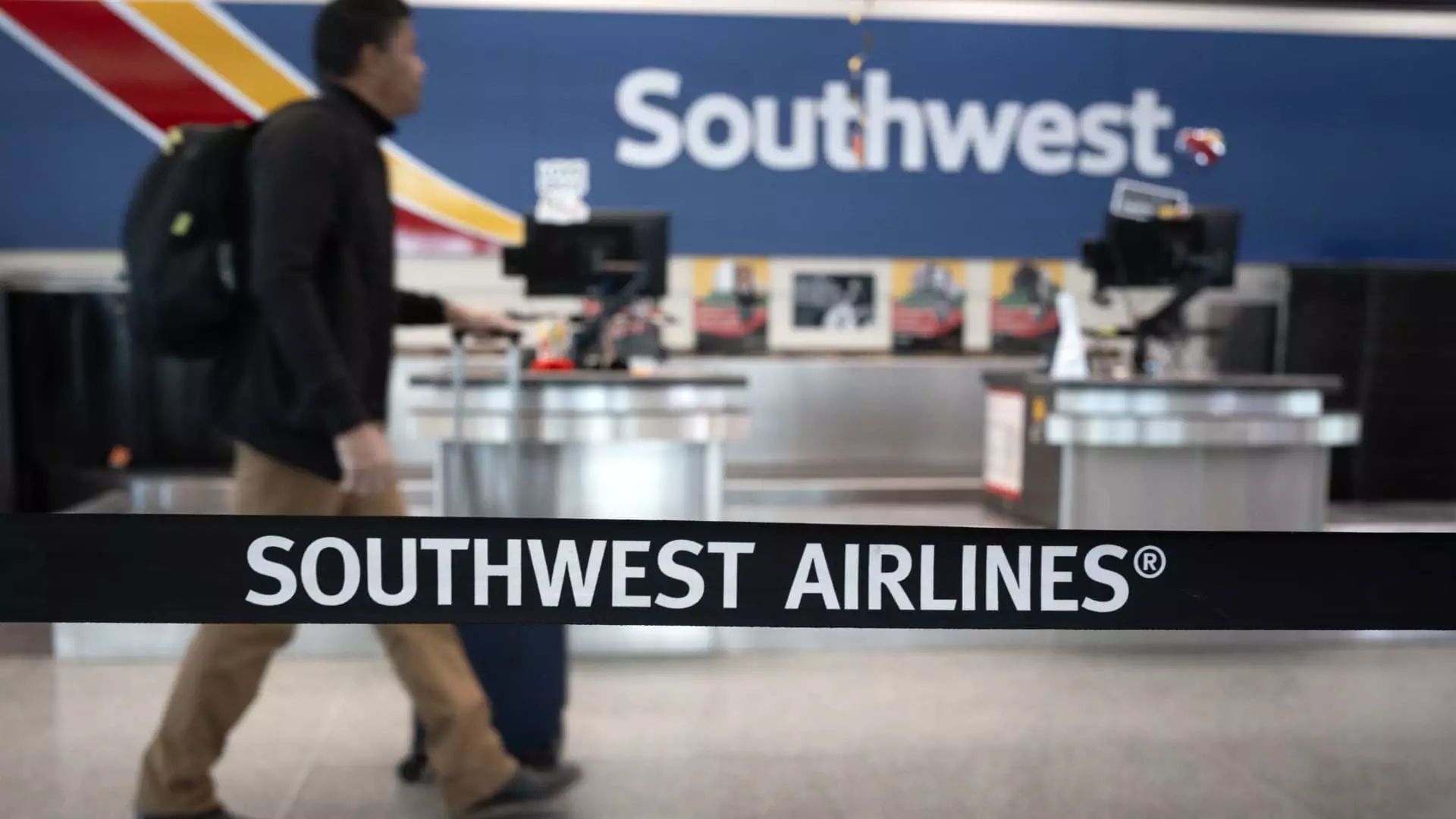Southwest Airlines has proudly championed its customer-centric ethos for decades, distinguishing itself from competitors with the mantra of “two bags fly free.” For many travelers, this was not just a policy; it was a promise from an airline that understood the essence of budget travel—simplicity and fairness. However, as of this Wednesday, that commitment falls by the wayside as the airline begins charging for checked baggage for the first time in over fifty years. This shift epitomizes a broader trend in the aviation industry, wherein corporations prioritize profit margins over the well-being of their customers.
Southwest’s decision comes in the wake of significant financial pressure, driven largely by investor demands and the relentless pursuit of revenue. Notably, the aviation industry collectively raked in nearly $7.3 billion from baggage fees last year alone. A recent push by Elliott Investment Management, a hedge fund with considerable influence after acquiring a stake in the company, has prompted Southwest to revise its long-standing policies. It’s a classic tale of an organization bowing to the whims of its shareholders at the expense of the very customers who buoyed its success.
The Death of an Iconic Policy
The termination of the “two bags fly free” policy serves as a betrayal to loyal customers who have heralded Southwest as a champion for the average traveler. With little to no warning, the airline’s loyalists are now left to navigate a minefield of new fees, especially since the exact cost of checked baggage remains ambiguous. In contrast to competitors who typically charge $35 or $40 for the first bag, Southwest is now part of a narrative driven by hidden charges and minimal transparency—a stark departure from its previous forthright and honest dealings with passengers.
Additionally, the introduction of basic-economy tickets also muddies the waters further. Customers purchasing these no-frills options are now subject to a slew of restrictions, including non-transferable tickets, shortened fare credit expiration, and last boarding privileges. Combining this with the ending of the Wanna Get Away fare—a mainstay for budget-conscious fliers—makes it abundantly clear that Southwest is adopting a business model which mirrors that of legacy carriers rather than retaining its unique appeal.
Profit Motive vs. Customer Experience
It is troubling that the current management at Southwest seems to prioritize short-term financial gains over long-term customer loyalty. The competitive landscape has undeniably shifted, but the fundamental values that originally elevated Southwest above their rivals seem alarmingly compromised. Airlines are not merely transportation services; they are integral parts of travel experiences, and high-handed financial decisions can sour this experience for many.
Moreover, the impending changes threaten to draw a rift between the airline and its loyal customer base. Regular patrons who once relished the simplicity of Southwest’s free baggage policy are now faced with uncertainty and extra costs. This is a stark deviation from the brand’s core identity, a brand that has historically been synonymous with friendly service and no hidden fees.
Customer Backlash and Corporate Indifference
As the date draws near for the implementation of these changes, Southwest has experienced a surge of backlash on social media—a platform where former fans of the airline are vocalizing their discontent. Comments regarding the new baggage policy overshadow posts aimed at promoting the airline. Yet, in the face of this consumer unrest, Southwest’s CEO Bob Jordan remains largely unfazed, claiming that customer booking patterns haven’t suffered since the announcement. This steely indifference raises questions about how well the management really understands its customers.
When companies begin to disregard customer sentiment, they often perform a dangerous balancing act. Successively ignoring the voices of those who pay for their services can lead to a gradual erosion of brand loyalty. It’s a slippery slope, one where financial decisions may yield immediate profit but at the risk of alienating a once-devoted customer base.
A Call to Action for Travelers
Travelers must now make a conscious choice: continue to support Southwest Airlines despite these new hurdles or seek alternatives that align more closely with their values. The narrative being crafted is one of corporate greed versus consumer ability to demand better. As flight costs soar, it remains imperative that customers band together to hold companies accountable for their practices.
The time has come for travelers to reclaim their voice in this equation. Patronage is powerful; it holds the potential to shift company policies through collective action. As Southwest Airlines takes this step away from customer sensitivity, the real question becomes whether they will feel the repercussions of their choices. It’s not merely about baggage fees; it’s about the very principles of customer-focused service that once defined an airline now teetering on the edge of commodification.

